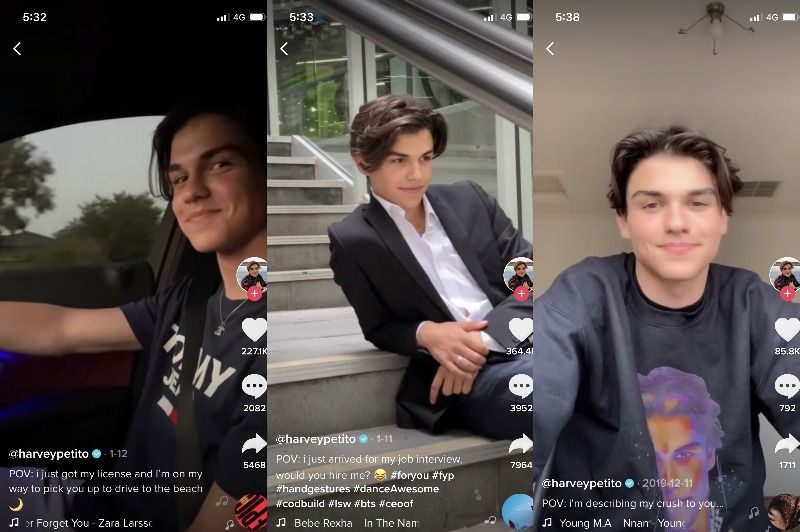The phenomenon, commonly called POV stands for Point of View. Shooting videos using the viewer’s point of view is one of the hottest trends on TikTok.

TikTok has entered many smartphones that previously “did not know it”, increasing and diversifying the public so it is inevitable that even the trends will change. Now that the platform is successfully consolidated, a new way of managing one’s online image is becoming more and more.
This is where new forms of acting like the one mentioned above come into play, styles that conquer more and more users. Playing as actors are the new pastime for a growing number of TikTok goers who favour intense monologues and real little scripts in which a part is played, almost always with pro-dramatic implications.
In short, as the app’s community diversifies so does the content showcased on the app. Small everyday problems, empathic characters who speak directly to the camera and the viewer and end up overlapping his point of view. A new tactic to convey songs and their meaning that can hopefully become mainstream through previously unexplored ways.
As many users are creatively showcasing their talent and imagination, through the use of POV’s. With many using the music and sounds offered in the platform to reveal and tell a story, even if it’s just for 15 seconds. Point-of-view videos, or POV’s create scenarios that range from horror, to historical fiction, to teenage fantasies, to the completely absurd.
One popular scenario use’s Dua Lipa’s Don’t start now, which saw guys and girls go out to a club and party, through their point of view. But each showcased a different storyline, some titled “POV: it’s been three months since we broke up and I bump into you at the club”.
Another popular POV is the Boyfriend POV. This genre is mainly on the for you page with users like like Lilhuddy and Harvey Petito. Many of these have simple captions such as “point of view: you came and swam at the beach with me” and “point of view: We go for a drive”. While others take, a darker route showcasing the jealous boyfriend troop like “point of view: I kidnap you because I still love you”.
But having a boyfriend is far from the only “point of view” genre on TikTok. The app’s “For You” page, offers an endless scroll of popular content, there’s also room for drama kids and books.
There are POVs told from the view of a literary character, and a micro-trend where someone discovers they are the child of Greek gods otherwise known as demigods inspired by the book character Percy Jackson, who is the son of the mortal Sally Jackson and the Greek god Poseidon.
Some even detailing the relationships between the gods and mortals. Such as “point of view: Aphrodite’s daughter sings your love song but the lyrics have changed since you lied to her” and “point of view: As goddess, we’re not supposed to tamper with human lives but sometimes we can’t help it”. And most recently “point of view: A group of teens discover they’re demigods”.
These videos often have little in common aside from the significant role that they assign to the viewer and the music and sounds that are used. By making viewers a part of the video, POV’s uniquely allowed creators to engage with viewers and by extension connect with their peers.
POV’s are so popular because they leverage TikTok to appeal to shared human experiences of joy, despair, embarrassment, and laughter. For now, at least, it’s something that sets TikTok apart from other social media apps.
In short, if on the one hand there is a tendency towards poignant and tear-jerking stories, on the other there is a move towards new technical experimentation, a new perspective, visual or interpretation of the platform to allow an exponentially growing number of people to show and express themselves.
This phenomenon seems to defy the odds: the TikTok For You page, in its seeming randomness, connects people with obscure mutual experiences. The result is something that feels fundamentally human.
Subscribe to FIB’s Weekly Alchemy Report for your weekly dose of music, fashion and pop culture news!






